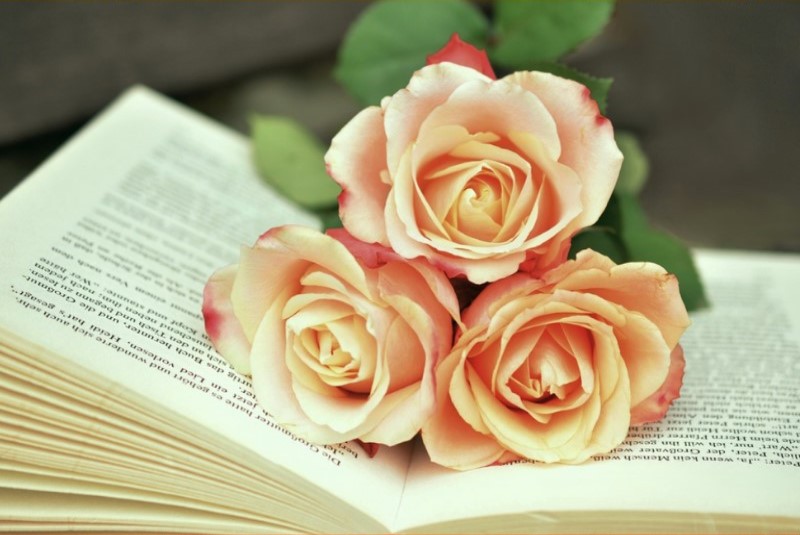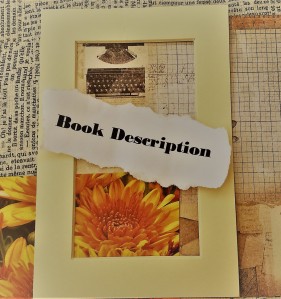 Euphonics For Writers: Professional Techniques for Fiction Authors by Rayne Hall
Euphonics For Writers: Professional Techniques for Fiction Authors by Rayne Hall
My rating: 5 of 5 stars
Another winning book from Rayne Hall’s Writer’s Craft series. As Rayne explains this book is about learning how to touch your reader’s subconscious with subtle tricks. There are sounds which effect our psyche and choosing which words you write can influence how a reader feels. This can then enhance the reading experience and may lead to a positive review of your book.
Set in two parts, part 1 deals with the different feelings and sounds letters of the alphabet make to our subconscious. For instance words with “m” are warm and motherly and make us feel cosy, roll these words over in your head; Mother, warm, comfy, welcome, how did they make you feel?
Part 2 deals with sound placement and writing rhythm. Rayne discussed alliteration, consonance & assonance, sentence lengths, starter words, the use of repetition of words, asyndeton & polysyndeton (how to make a piece of writing fast or slow paced)
Even though I am not writing a book at the moment, I am excited to try out some of these techniques in simple everyday pieces I write.
Learn how to touch your readers’ subconscious with subtle tricks.
Certain sounds have certain effects on the psyche. By using words which include those sounds, you influence how the reader feels.
Euphonic techniques are popular in poetry, but seldom used in prose. This guide shows how you can apply them to make your prose fiction sparkle.
For the purpose of this book, I define euphonics as the use of sound devices for prose writing. Poets, musicians and special effects engineers have their own definitions.
I’ll show you which sounds to apply to manipulate your reader’s psyche the way you want. You’ll learn how to impress your readers with power, how make their hearts race with urgency, how to creep them out and how let them linger in a sensual scene.
Part 1 is a thesaurus of sound effects where you can look up the best sounds to enhance the mood of your scene.
In Part 2, you’ll learn how and when to apply the sounds and how to combine them with rhythm for best effect.
This book isn’t meant as a definitive scholarly tome for academics. but a practical kit for working authors who want to refine their voice. I’ll avoid literary theory and grammatical jargon. Instead, I’ll give you useful tools.
Novice writers can have inspiring fun playing with euphonics. In the hands of skilled writers – for whom this guide is intended – euphonics are power tools.
Euphonics can’t replace basic fiction crafting skills, but they can add impact and polish to a well-written piece.
In print, the effects are very subtle, serving only to enhance what’s already there, and need to be combined with other techniques. But if you plan to perform author readings or release an audiobook, the euphonics will hold listeners enthralled with poetic power.
I’m writing in British English. Some spellings, grammatical rules and word choices differ from American English, but the euphonic effects are the same.
Now open your manuscript draft to give it that special polish.
Find a copy here from Amazon.co.uk or Amazon.com
View all my reviews on Goodreads


This sounds fascinating; I am sure shrewd advertising people use all these tricks, if that’s not the wrong word, so why not writers/bloggers? Think I will get this. If you see a surfeit of Ms in my next book, you’ll know why 😉
LikeLike
Yes, advertisers use these techniques… some of them, anyway. Especially the ones related to sound placement and rhythm. Poets also use them. Strangely, fiction writers seem mostly unaware of these techniques. And yes, you can call them tricks. 🙂
LikeLike
….. bought. 🙂
LikeLike
Excellent, there were plenty of other letters to create all sorts of atmospheres in your writing…enjoy the book.
LikeLike
I am a new author… Thanks Libby
LikeLike
The comment above has been edited. Thank you Libby, this was not the place to request a book review. Be careful of your approach to reviewers, it needs careful thought and proof you have researched suitable reviewers.
LikeLike
Thanks for editing my error
LikeLike
Sold to me too, Rosie.
Thank you for the tip!
LikeLike
Thank you June, it was a little gold mine.
LikeLike
Reblogged this on Barrow Blogs: .
LikeLike
I wonder if Rayne Hall is thinking about offering a pack with all her books as they all sound must reads for writers, and very good presents too.
LikeLike
Maybe, but they are so cheap, they are easy purchases anyway.
LikeLike
Just to warn you in advance; the 99c per Kindle book offer ends on 30 January. Then they’ll be $2.99 again.
LikeLike
I see on Amazon.co.uk, the series of 16 books are offered as a pack. I haven’t worked out if the pack is any cheaper than buying them individually, though.
LikeLike
Brilliant, thanks for that Christine.
LikeLike
I don’t think Amazon is offering them cheaper… not that I know, anyway.
LikeLike
I have two bundles with five books each, and plan to prepare a third later this year.
LikeLike
Thanks for stopping by and letting us know Rayne.
LikeLike
Thanks for featuring my book on your great blog. 🙂
LikeLike
You’re welcome Rayne, I like your books.
LikeLike
Alliteration, consonance, and assonance come naturally to some writers; most of the time, we have to work at making our words sound more pleasing. I’m not sure that today’s readers notice or appreciate the beauty of language, but we writers do!
Special thanks to Rayne Hall for all the books she’s written on the craft of writing–which is, when done with considerable care, an art. Pinned & shared. 🙂
LikeLike
You know, that’s quite interesting about the different feelings certain letter sounds invoke in our subconsciousness. Who studies this type of thing? 🙂
@dino0726 from
FictionZeal – Impartial, Straightforward Fiction Book Reviews
LikeLike
Thanks Diane, it was really interesting to read.
LikeLike
I think I will get this book. Would love to see how to speed things up for action scenes and choose words to make readers feel. Mmmmmm,,,,,,
LikeLike
Oh do Noelle, it’s SUPER interesting.
LikeLike
Picked up a copy. Look forward to reading. Blessings!
LikeLike
Have fun being creative with your writing.
LikeLike